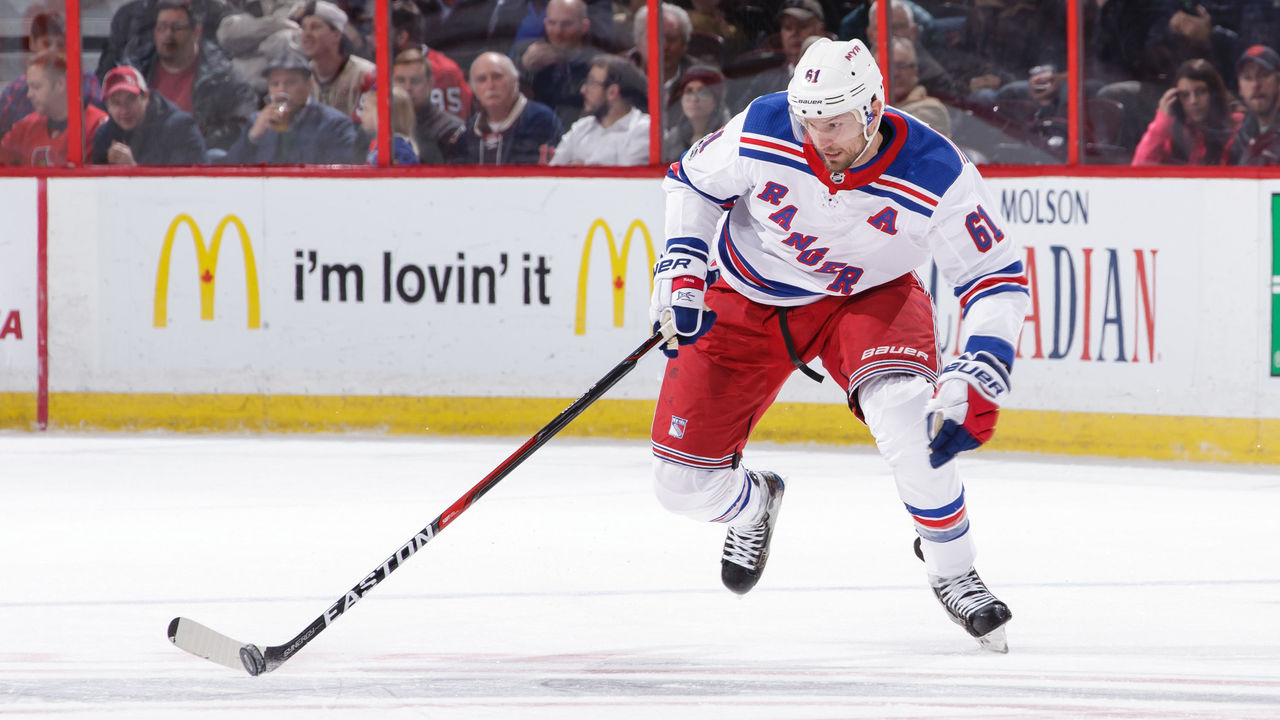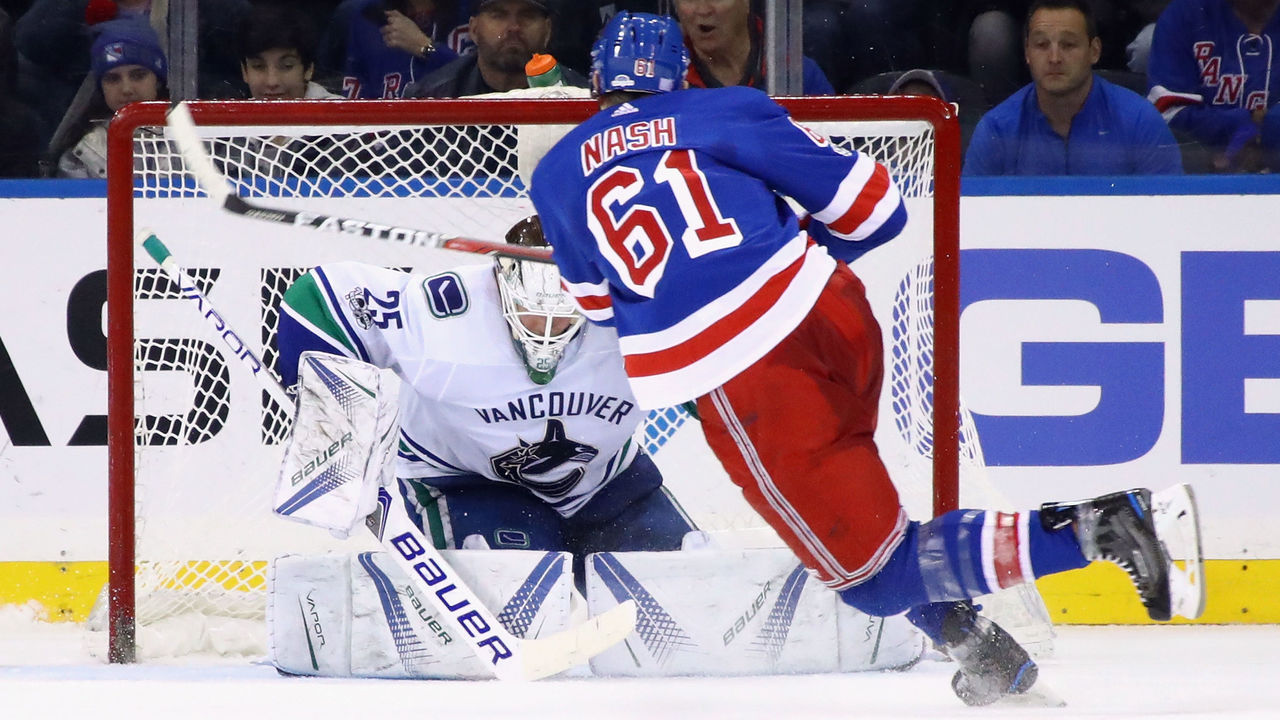On the move? The pros and cons of trading for Rick Nash
The first step of Rick Nash's potential departure from the Big Apple has taken place, as the veteran winger submitted an 18-team no-trade list to the Rangers' brass - at their request - leaving 12 clubs available to swoop in for his services before the Feb. 26 trade deadline.
Nash is in his sixth season with New York, but he'll become an unrestricted free agent on July 1. That, combined with the Rangers' apparent desire to rebuild, will make the 33-year-old one of the top rental targets for potential Stanley Cup contenders in this year's winger-heavy market.
Still, there are several factors to consider for teams interested in acquiring Nash, and below, we'll get into the pros and cons attached to one of the biggest names on the block.
Pro: Reliability

Gone are the days of Nash pouring in 40 goals per season, but that's not to say he's lost his effectiveness. He'd be an immediate upgrade on the wing for many teams and can be deployed in any situation. And on top of being a mainstay in the Rangers' top six and first power-play unit, Nash ranks third among all New York forwards in penalty-kill time.
The veteran can be counted on to make smart decisions on the ice and has always excelled at protecting the puck. He's also 13th in the NHL in takeaways, and despite a drop-off in production, still has 15 goals so far this season.
Con: Cost
The main hurdle to overcome will be the cost, as trade partners won't want to take on the entirety of Nash's $7.8-million cap hit. And should a team convince the Rangers to eat a significant chunk of that salary, the next obstacle will be New York's asking price.
Rangers general manager Jeff Gorton received a top-10 pick and developing blue-liner Anthony DeAngelo for Derek Stepan last summer, so it's reasonable to think he'd expect something similar for Nash.
And while Nash is certainly one of the better players available, will a contending team be willing to part with multiple prime assets for a playoff run with a roster reinforced by him? Well, that's for the general managers to decide.
Pro: Strong underlying numbers

Despite converting fewer chances, Nash is still creating offense at a high rate. He's been well below his career shooting percentage (12.1) over the past three seasons, but has still been one of the most dangerous Rangers in the attacking zone.
Related: Father Time isn't defeating Rick Nash, but bad luck may be
And even though New York is routinely dominated by opponents on the shot clock, Nash is one of the few Rangers with a positive Corsi For relative to his teammates (2.02). He also leads the club in individual expected goals for (10.26) and individual shot attempts (190). If Nash was just getting a little luckier when it comes to cashing in his scoring opportunities, his trade value would likely be much higher.
(All advanced stats at five-on-five, entering Monday's games. Courtesy: Corsica)
Con: Playoff history
Nash and the Rangers have qualified for the postseason in each of the last six seasons, even reaching the Stanley Cup Final in 2014 - a five-game defeat to the Los Angeles Kings. Still, even with ample opportunities, Nash has never established himself as a strong playoff performer.
In 73 postseason games with the Rangers, Nash has recorded 14 goals and 24 assists, including just three goals in 25 contests when New York emerged out of the Eastern Conference four seasons ago.
It's difficult to pinpoint why certain players struggle or excel come playoff time, but unfortunately for Nash, he falls in the former category. Now, whether his underwhelming postseason reputation will be enough to scare off GMs remains to be seen, but it's assuredly going to be considered before any executive mortgages significant pieces of their team's future.
(Photos Courtesy: Getty Images)